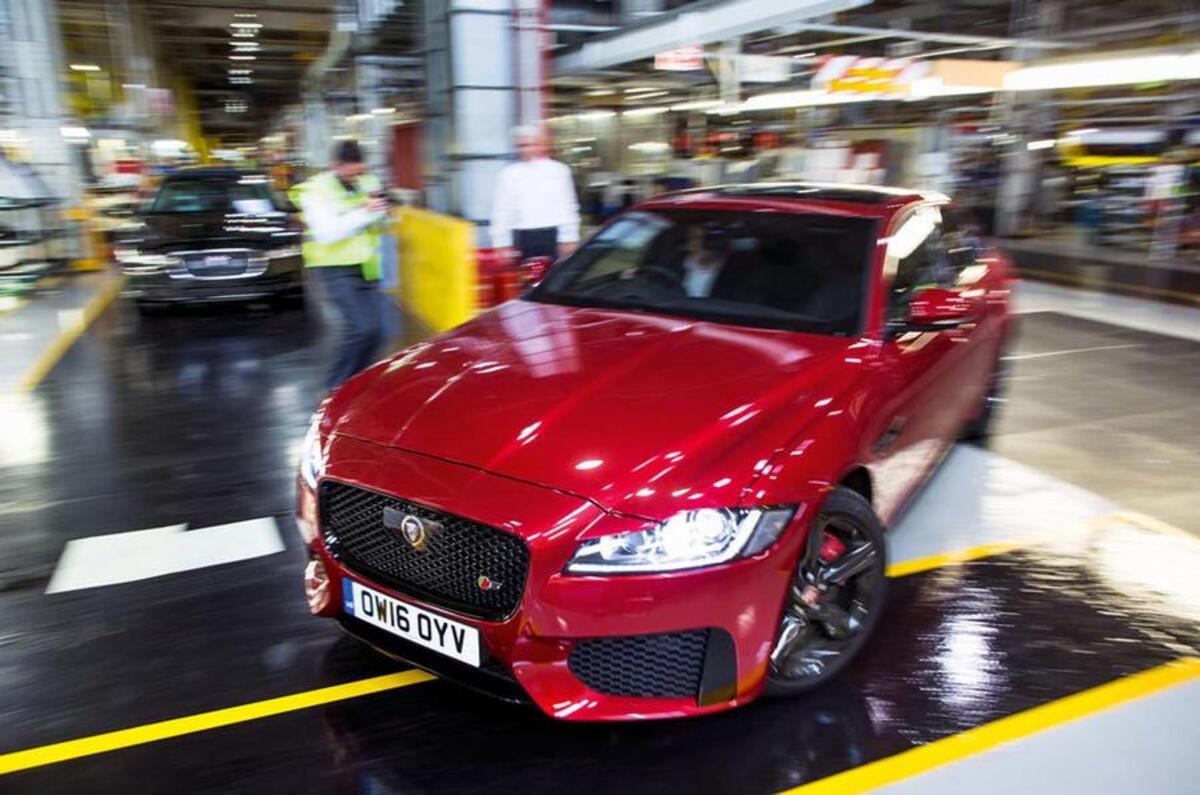UK car production took a hit for the fifth month in a row in September as domestic demand fell by 14.2% to 31,421 units.
Production reached 153,224 units across the four weeks, a 4.1% decrease on September 2016, with exports also down by 1.1% to 121,803.
The UK’s year-to-date performance now totals 1,259,509 at the last count, which is 2.2% or 28,171 units down on the same point in 2016.
The impact of Britain’s slowing industry was reflected in European registration numbers, which fell by 2.2% to 1,461,683 vehicles.
The UK was among the worst hit, with registrations (which differ from the aforementioned sales) down by 9.3%, although Ireland, Denmark and Latvia saw even bigger falls, albeit as considerably smaller markets. More significant was Germany, Europe’s biggest market ahead of the UK, where registrations were down by 3.3%.
Despite the slump in UK output, figures from the last six years show that output still ranks significantly higher than the period of slow growth after the economic crisis. Since September last year, the UK has produced 1,694,663 vehicles, but even as recently as 2015 that number was closer to 1.5 million. The UK's output of engines has also grown in recent months, with production up by 3.9% in September compared with the month in 2016. Exports represented 51.3% of engine demand.
However, Society of Motor Manufacturers and Traders CEO Mike Hawes warns that this downward trend is an example of the damage to progress that recent economic uncertainty and changing automotive legislation, such as the new London T-charge and Oxford's potential ban on combustion engine cars, is causing. Before last year's Brexit vote, the UK's rate of progress was consistently breaking records.
“With UK car manufacturing falling for a fifth month this year, it’s clear that declining consumer and business confidence is affecting domestic demand and hence production volumes,” he said. “Uncertainty regarding the national air quality plans also didn’t help the domestic market for diesel cars, despite the fact that these new vehicles will face no extra charges or restrictions across the UK.
“Brexit is the greatest challenge of our times and yet we still don’t have any clarity on what our future relationship with our biggest trading partner will look like, nor detail of the transitional deal being sought. Leaving the EU with no deal would be the worst outcome for our sector so we urge government to deliver on its commitments and safeguard the competitiveness of the industry.”




Join the debate
Add your comment
Greedy manufacturers
Part of the problem is the inflated prices that manufacturers charge ie. Jaguar are charging £126.00 for Jump Leads. Get a set at Halfords for £10.00, yes I know they will not have Jaguar printed on them.
Greedy manufacturers
Part of the problem is the inflated prices that manufacturers charge ie. Jaguar are charging £126.00 for Jump Leads. Get a set at Halfords for £10.00, yes I know they will not have Jaguar printed on them.
This has nothing to do with Brexit